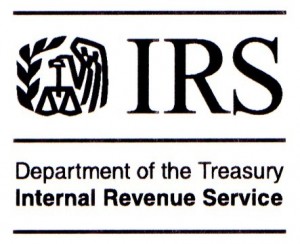I suggest you check out Idealware. They’re smart researchers in technology with lots of valuable resources to help you work your mission smartly.
I suggest you check out Idealware. They’re smart researchers in technology with lots of valuable resources to help you work your mission smartly.
Start in your home state. What ever state your charity is incorporated in, or does most of its business in (for some, those are different), register your charity solicitations there first. Most of the registration enforcement actions are in the home state. That makes sense, it’s the state or states with the most interest in your work because you’ve got most of your presence there. Charity starts at home. Charity registrations do too.
I am starting to see fines imposed by states when clients register for the first time. Fines have always been possible when you come into compliance, but states had ignored past solicitations. Now a few are raising revenue as they welcome charities into compliance by fining them for noncompliant registrations. I’ve seen fines in Illinois and Pennsylvania.
We’re often reaching out to state offices that manage registrations, usually the attorney general or secretary of state, on behalf of our registration clients. Generally, the person you’re talking to wants to help. Though we’ve found some states don’t even return calls or emails. When you do get someone, the more precise you can be with your question, the more likely you are to get willing help.
 GuideStar advised in an email yesterday that IRS will soon release its “Nonfiler Revocation List.” The Service says the same in a February article.
GuideStar advised in an email yesterday that IRS will soon release its “Nonfiler Revocation List.” The Service says the same in a February article.
According to GuideStar, the list contains “as many as 321,000 nonprofits.” That’s one-quarter of all the public charities in the United States. The New York Times had the same estimate in coverage last April, ahead of the May 15 filing deadline that caused the loss of tax-exempt status for so many. Failure to file form 990 with IRS for three consecutive years lands you on the list.
From the IRS article: “Loss of exempt status means an organization must file income tax returns and pay income tax, and its contributors will not be able to deduct their donations.”
And from a July, 2010 IRS press release: “If an organization loses its exemption, it will have to reapply with the IRS to regain its tax-exempt status. Any income received between the revocation date and renewed exemption may be taxable.”
You know I’m big on compliance issues. CEOs and boards have got to step-up to their fiduciary duties to the charity and stop ignoring legal requirements.
The regulatory environment is only going to get more hostile to scofflaw nonprofits. This applies to tax code requirements, governance issues, and state laws, like charity solicitation registration filings. The days of mom-and-pop boards “doing good” are long over.
This filing requirement was heavily publicized by IRS last year ahead of the deadline, and the agency extended the deadline to October for small charities. It was covered by mass media. There’s just no excuse if your charity is an active organization. File your delinquent returns. If the organization has terminated activity–or merged with another nonprofit–you need to disclose that to IRS on a final form 990.